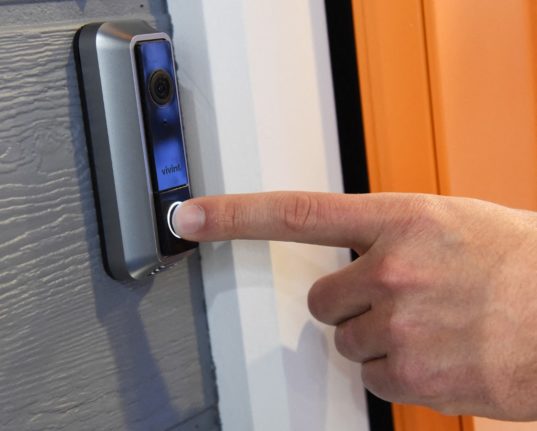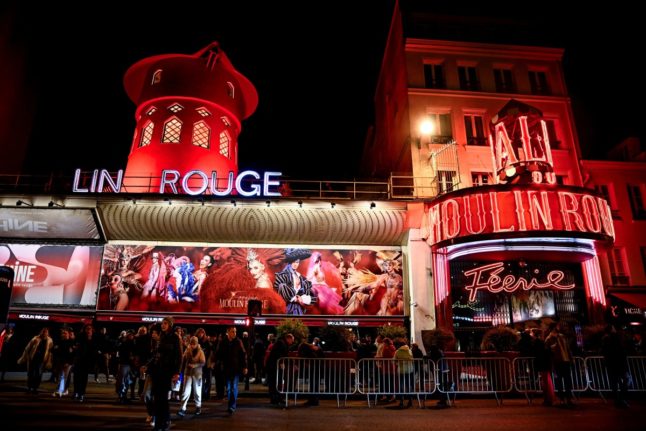In France, privacy is not only a privilege, it is a right – the phrase “everybody has the right to privacy” is enshrined in Article 9 of the French Civil Code.
READ MORE: CCTV, drones and online cookies: How France’s strict privacy rules work
Privacy rules affect many aspects of life in France, including installing a doorbell camera on your French property.
In brief, French law does allow you to have cameras set up in and around your home, but there are several privacy related rules and regulations you will have to respect – for example, private individuals cannot film public spaces or neighbours’ homes or doors.
The public domain includes the street, pavement and any communal areas in front of your house, including hallways if you are in an a shared building.
As such, those living in apartments or condominiums would likely not be able to install a doorbell camera without accidentally filming the ‘public space’ or their neighbour’s private property.
People living in single-family homes need to be careful about the way the camera is pointed to only film within their own property – meaning inside your home, apartment, garden, driveway or on a private access road if you have one.
If you employ anyone on your property, then you are legally obliged to inform them of the presence of a camera and you cannot film them “permanently”.
In certain circumstances, you may also be required to conduct a “data protection impact analysis (DPA)” before setting up surveillance cameras.
READ MORE: Can I set up a security camera on my French property?
What happens if I film the public space?
A violation of Article 9 can be punishable by up to one year’s imprisonment and a fine of up to €45,000.
If your neighbour believes that your camera is filming either them or their property, then they can contact the police or lodge a complaint with the French data protection agency, CNIL.
What if I want to deter burglars?
If you want a deterrent at your door, but you cannot set up a camera without filming your neighbours, then you might consider adding a plaque or sign on your door warning that there is a surveillance system inside.
What about cameras in my apartment building?
It is possible for the building to set up a surveillance system in public spaces. However, the copropriété must agree via a vote of the general assembly of co-owners. If installed, there must be signage or panels that inform inhabitants of the presence of CCTV cameras.
These cameras cannot film the doors of apartments, balconies, terraces or windows.
They are meant to protect common areas, including the parking garage, entrance halls, courtyards or elevators.
Who can be filmed?
Even though you have the right to film within your own property, you cannot film just anyone that comes into your house. If you employ anyone on your property – like a cleaner, nanny or gardener – then you must inform them of the existence of the security cameras and the purpose of the filming.
Filming workers on your property without their awareness can be considered a crime and also result in fines and/or prison time.
France’s data protection body, CNIL, recommends that you include mention of security cameras in any employment contracts with people working on your property. According to CNIL, you must also post a notice (for example, a sign or flyer) so that employees know when they are entering an area that is being filmed.
You also cannot film workers on your property ‘in permanence’ – this means you do not have the right to continuously film your staff during the full exercise of their duties.
According to French law, employers have the right to monitor their employees, but this cannot intrude on the employee’s right to privacy. This means that employers cannot film bathrooms, for instance.
In very select cases, if your cameras are capable of identifying people, you may need to contact CNIL to conduct a “data protection impact analysis (DPA)” before setting up surveillance cameras. This is occasionally required when filming employees, and you can learn more HERE.
What if I am using a surveillance company?
CNIL advises that you carefully read the contract to ensure that the company does not store your images for more than one month (as prescribed by GDPR rules).



 Please whitelist us to continue reading.
Please whitelist us to continue reading.
Does this mean that dashboard cameras and cameras on cycle helmets are illegal?
So what about dashcams and go-pro cameras which are permanently filming traffic on public roads?
Great question! We looked into it . . .
https://www.thelocal.fr/20240307/are-car-dashcams-and-cycle-helmet-cameras-legal-in-france